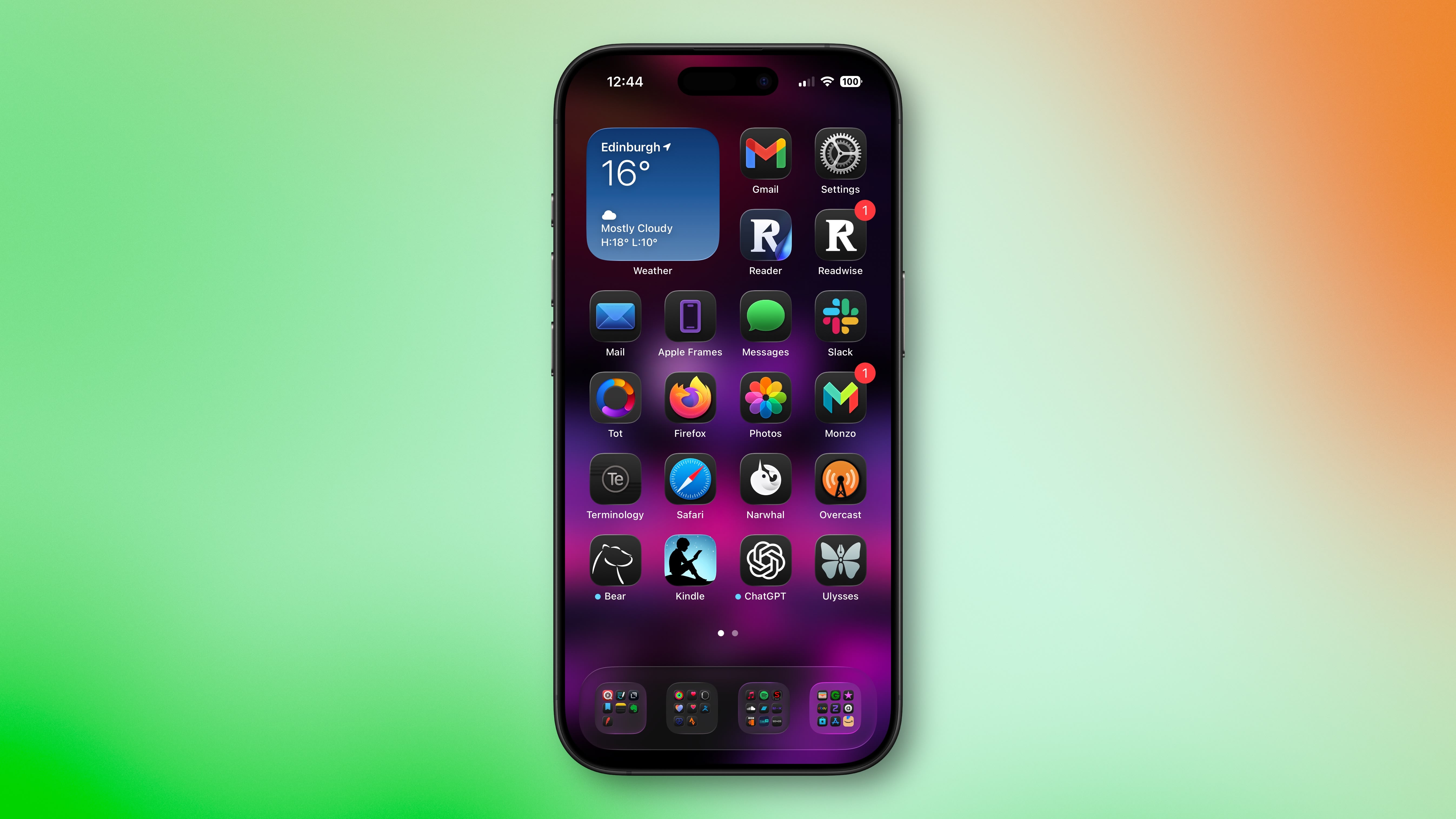"Are you suffering from the Liquid Glass optical illusion? Let us know in the comments."
No I'm not experiencing it or "suffering" from it.
Edit: the linked Gizmodo article has at least one inaccuracy: "To create the effect of glass and all of its reflective and shimmering properties, iOS 26 forces every icon on your iPhone home screen to have a slight glow to them in the top left and lower right corners."
Unless that's referring to some other effect, that slight glow is around the icons and shifts as you tilt your phone -- it's not just the top left and lower right corners. If I tilt my phone, the glow will travel around the icons (easier to see on folders), shifting from the top/bottom/corners/sides to another location. It's a subtle effect that I think is a cool little detail.
2nd edit: I'm not saying other people are not experiencing the effect, just that I'm not, which is what the author of the Macrumors article asked us to do. Also, while it can be thought of as an optical illusion, it's a different type of one that only appears to affect a small number of people (or at least a small enough subset who care to comment online about it).
Optical illusions typically affect most to all people who are not seeing impaired. That this is only affecting a subset of people suggests it is a peculiar intersection of how those individual's brains are working and the specific stimulus of iOS's UI. Most to all human behavior is understood to be on a normal (Gaussian) distribution. There will always be people who have and experience things that are "abnormal" (in one of the distribution tails). That's not inherently bad. In many instances it's thought to be positive (e.g, 'superior' IQ).
While there are people experiencing this particular effect, what complicates the potential issue is the effect of suggestion through social pressure. What this means is that some people don't really notice the effect but when it's brought to their attention they start to and might even state, "Now I can't unsee it!" That's because what we perceive is affected by what we pay attention to (we can perceive things we are not aware of) and how we interpret what we perceive.
In effect, some people experience the effect but others do not notice the effect until it's brought to their attention. Some other people also convince themselves or are convinced by others that it's there when they do not really experience it. That's not lying (although it's possible some people are lying about it), it's just the nature of how our brains work. Brains are kind of weird in that way. They are amazing, but weird.
It's possible that some people will adjust to the changes and their brains will stop perceiving the effect (e.g.,
https://news.uci.edu/magazines/articles/flipped-reality/). It's also possible some people will continue to experience it. Our brains are excellent at adapting and normalizing (adjusting to) new experiences most of the time.
If you are experiencing this effect, give it time and it might go away. If it doesn't go away and it is too distracting, hopefully various accessibility settings will rectify it.
3rd edit: "The issue has gained attention on Reddit, with one post receiving over 3,000 upvotes". Can we stop using things like this as a metric of anything meaningful? There's the issue of selection bias, bots, and more. It's data but unscientific and potentially useless and even misleading data. The data can be used in peer-reviewed research, but it's not a great way to accurately assess prevalence of something.



